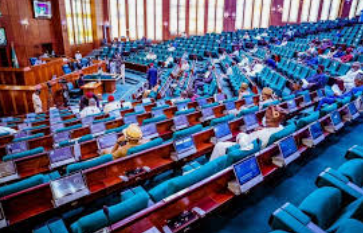Tax Reform Resurfaces: A Deeper Dive into the Renewed Debate
The clamor for tax reform has once again taken center stage, with Representatives poised to reignite discussions and delve into the intricacies of potential revisions. Closed-door sessions are being convened, signaling the seriousness of the undertaking and the desire for a comprehensive review of the existing tax code. While specific details regarding the proposed changes remain closely guarded, the renewed focus suggests a potential shift in the legislative landscape, with lawmakers potentially seeking to address long-standing concerns and modernize the tax system for the 21st century. The push for reform comes amid a backdrop of economic uncertainty, raising questions about the potential impact of any changes on businesses, individuals, and the overall economy.
The impetus for this renewed debate stems from a confluence of factors. The current tax code is widely criticized for its complexity, riddled with loopholes and exemptions that benefit specific groups while potentially hindering economic growth. Proponents of reform argue that simplification is crucial, streamlining the process for both individuals and businesses and promoting greater transparency. Furthermore, the increasing globalization of the economy necessitates a tax system that can effectively address the challenges of cross-border transactions and prevent tax avoidance by multinational corporations. Finally, the need to generate revenue for essential government programs, including infrastructure investments and social safety nets, adds another layer of complexity to the debate.
As Representatives prepare to engage in closed-door discussions, several key areas are likely to be focal points of contention. Individual income tax rates, corporate tax rates, and the treatment of capital gains are all expected to be on the agenda. The debate surrounding individual income taxes will likely revolve around the progressivity of the system – the extent to which higher earners pay a larger percentage of their income in taxes. Advocates for a more progressive system argue that it reduces income inequality and provides greater resources for government programs. Conversely, opponents contend that high tax rates discourage investment and economic growth. Corporate tax rates are another area ripe for debate, with some arguing for lower rates to attract investment and boost competitiveness, while others advocate for maintaining or even increasing rates to ensure corporations pay their fair share.
The treatment of capital gains – profits from the sale of assets such as stocks and real estate – is another contentious issue. Currently, capital gains are often taxed at a lower rate than ordinary income, which critics argue unfairly benefits wealthy individuals who derive a significant portion of their income from investments. Proponents of lower capital gains rates maintain that they incentivize investment and drive economic growth. Beyond these core areas, the debate will likely encompass a wide range of other tax provisions, including deductions, credits, and exemptions. Each of these provisions has its own set of supporters and detractors, adding to the complexity of the legislative process.
The closed-door nature of the initial discussions raises questions about transparency and public input. While such sessions allow for frank and candid exchanges among lawmakers, they also limit public access to the details of the proposals being considered. Critics argue that this lack of transparency can lead to backroom deals and legislation that favors special interests over the broader public good. Conversely, supporters of closed-door sessions contend that they are necessary to facilitate productive negotiations and avoid grandstanding. Ultimately, the balance between transparency and efficiency will be a crucial factor in determining the outcome of the tax reform debate.
As the debate unfolds, the potential economic consequences of any changes will be under intense scrutiny. Supporters of tax reform argue that it can stimulate economic growth by simplifying the tax code, lowering tax rates, and promoting investment. They point to historical examples of tax cuts leading to periods of economic expansion. However, critics caution that tax cuts can also lead to increased budget deficits and exacerbate income inequality. They argue that revenue lost through tax cuts may need to be offset by cuts to government programs or increased borrowing. The economic impact of tax reform is complex and depends on a multitude of factors, including the specific provisions enacted, the overall economic climate, and the response of businesses and individuals. A rigorous analysis of the potential economic consequences is essential to ensure that any changes to the tax code are beneficial for the long-term health of the economy.














